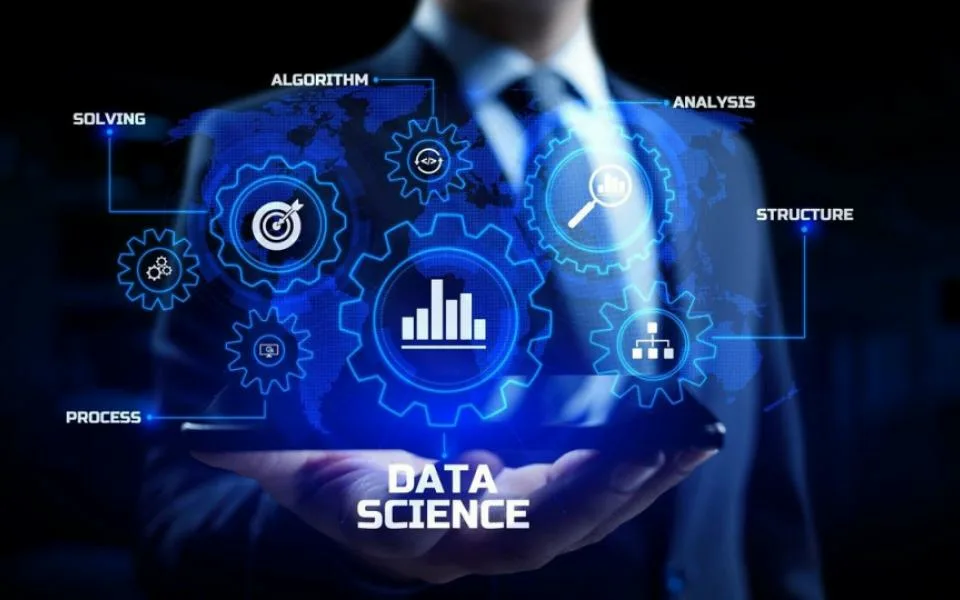Data science is transforming the healthcare industry, offering innovative solutions to complex problems and significantly improving patient outcomes. From predictive analytics to personalized medicine, data science is revolutionizing how healthcare providers diagnose, treat, and manage diseases. Here are ten breakthrough applications of data science in healthcare that are shaping the future of medicine.
1. Predictive Analytics for Disease Outbreaks
Predictive analytics uses historical data and machine learning algorithms to forecast disease outbreaks. By analyzing patterns and trends, healthcare professionals can predict the spread of infectious diseases and implement preventive measures. This capability is crucial for managing pandemics and preventing large-scale health crises. Data science courses, such as those offered by MIT, emphasize the importance of predictive analytics in healthcare.
2. Personalized Medicine
Personalized medicine tailors medical treatment to the individual characteristics of each patient. Data science enables the analysis of genetic, environmental, and lifestyle factors to determine the most effective treatments. This approach increases the likelihood of successful outcomes and reduces the risk of adverse reactions. IIT Bombay data science course includes coursework on personalized medicine, highlighting its potential to revolutionize patient care.
3. Medical Imaging Analysis
Advanced data science techniques are improving the accuracy of medical imaging analysis. Machine learning algorithms can analyze medical images, such as X-rays, MRIs, and CT scans, to detect abnormalities and diagnose conditions with higher precision. This application of data science enhances diagnostic accuracy and speeds up the treatment process.
4. Predictive Analytics for Patient Outcomes
Data science helps predict patient outcomes by analyzing data from electronic health records (EHRs), clinical trials, and other sources. Predictive models can identify patients at risk of complications, enabling healthcare providers to intervene early and improve patient outcomes. This proactive approach to patient care is becoming increasingly important in modern healthcare.
5. Drug Discovery and Development
The process of drug discovery and development is time-consuming and costly. Data science accelerates this process by analyzing vast amounts of data to identify potential drug candidates, predict their efficacy, and optimize clinical trials. This application of data science reduces the time and cost associated with bringing new drugs to market.
6. Remote Patient Monitoring
Data science enables remote patient monitoring through wearable devices and mobile health applications. These technologies collect real-time data on vital signs, physical activity, and other health metrics. Data scientists analyze this data to monitor patient health, detect early signs of deterioration, and provide timely interventions. Remote patient monitoring improves patient outcomes and reduces the need for hospital visits.
7. Natural Language Processing for Clinical Documentation
Natural language processing (NLP) is revolutionizing clinical documentation by extracting valuable insights from unstructured text in medical records. NLP algorithms can analyze physician notes, patient histories, and research articles to identify relevant information and support clinical decision-making. This application of data science enhances the efficiency and accuracy of medical documentation.
8. Genomic Data Analysis
Genomic data analysis is a critical application of data science in healthcare. By analyzing genomic data, researchers can identify genetic mutations linked to diseases, understand their mechanisms, and develop targeted therapies. Data science courses, including those at MIT, cover genomic data analysis, highlighting its role in advancing precision medicine.
9. Optimizing Healthcare Operations
Data science optimizes healthcare operations by analyzing data on patient flow, resource utilization, and staff performance. Predictive analytics can forecast patient admissions, enabling hospitals to allocate resources effectively and reduce wait times. This application of data science improves operational efficiency and enhances patient satisfaction.
10. Improving Mental Health Treatment
Data science is making significant strides in improving mental health treatment. By analyzing data from social media, wearable devices, and electronic health records, data scientists can identify patterns indicative of mental health issues. This information helps healthcare providers offer personalized treatment plans and monitor patient progress. The integration of data science in mental health care is paving the way for more effective and timely interventions.
Conclusion
Data science is revolutionizing healthcare by providing innovative solutions that improve patient outcomes, enhance diagnostic accuracy, and optimize operations. From predictive analytics and personalized medicine to remote patient monitoring and genomic data analysis, the applications of data science in healthcare are vast and transformative. Pursuing a comprehensive data science course, such as a data science course, can equip healthcare professionals with the skills and knowledge needed to leverage data science effectively. As the healthcare industry continues to evolve, the integration of data science will play a crucial role in shaping the future of medicine and improving the quality of patient care.





